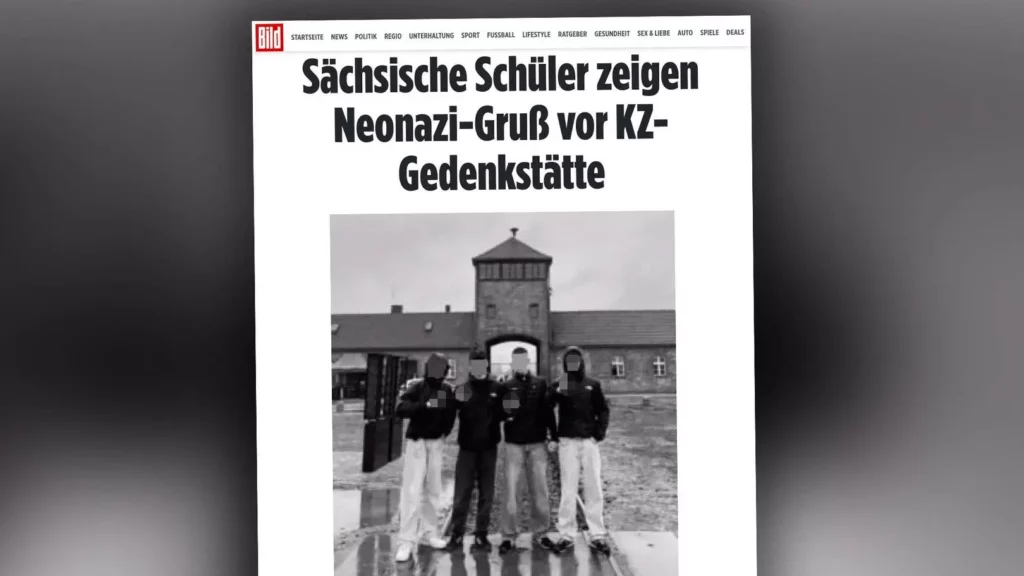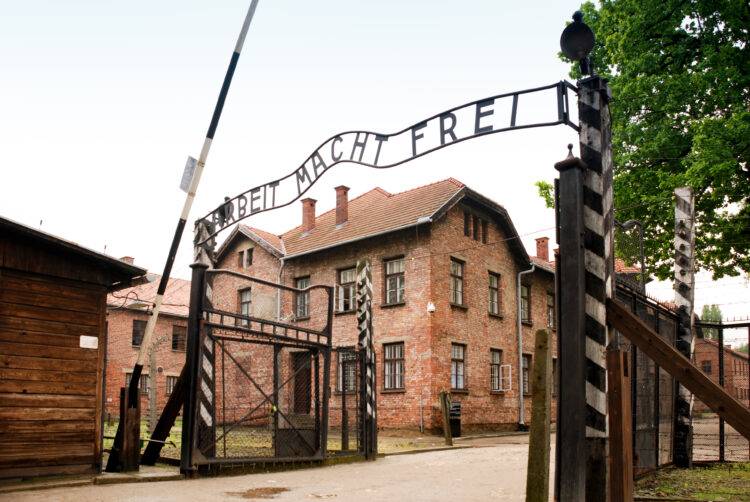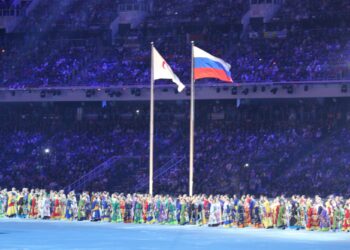A group of German high school students triggered outrage after posing for a photo while making a neo-Nazi hand gesture during a visit to the former Auschwitz-Birkenau concentration camp — and posting the image publicly on Instagram.
The incident took place on March 13 during an educational trip to the Auschwitz Memorial in southern Poland, according to Polish media outlet TVN24 and the German news agency dpa.
Four ninth-grade students from the Scultetus School in Goerlitz, eastern Germany, were photographed displaying the “White Power” hand sign, a gesture associated with far-right extremism and white supremacist ideology.
Adding to the scandal, the students shared the image on Instagram, amplifying the outrage after the photo spread across social media and was later reported by German media, including Bild.
Immediate Condemnation and Disciplinary Action
Authorities from the Saxon Education Authority confirmed the incident and said the school acted immediately upon learning of the students’ actions.
“The school’s management conducted urgent talks with the students and their parents,” a spokesperson for the Education Authority said. “As a disciplinary measure, the students received official reprimands and will perform community service in a sheltered workshop.”
Officials emphasized that while the gesture itself is not illegal under German law, its use — especially in a location commemorating victims of the Holocaust — was “absolutely unacceptable” and contrary to the values promoted in German schools.
Anti-Fascist Group Raised the Alarm
The incident came to public attention following an investigation by the Dresden-based anti-fascist group Antifa Elbflorenz, which monitors far-right activities in the region. The group described the students’ behavior as a disturbing sign of growing youth radicalization in Saxony.
“This incident demonstrates the worrying extent of youth neo-Nazism in Saxony,” the group said in a statement. “Auschwitz is a place of remembrance for the victims of one of humanity’s greatest crimes. Such behavior is shameful and inexcusable.”
Pattern of Far-Right Incidents Among Youth
German media highlighted that this is not an isolated incident. Recently, students from Bielefeld, in western Germany, were accused of singing a racist song after visiting the Bergen-Belsen concentration camp memorial. Witnesses reported hearing students chant slogans such as “Germany for Germans, foreigners out,” a phrase frequently used by far-right groups.
Experts warn that despite Germany’s extensive efforts in Holocaust education, far-right ideologies continue to appeal to some young people, particularly in parts of eastern Germany.

“This is a wake-up call,” said political scientist Hajo Funke, an expert on extremism. “Education needs to be accompanied by consistent prevention programs and clear societal condemnation of such acts.”
Auschwitz Memorial Silent So Far
The Auschwitz-Birkenau State Museum has not publicly commented on the incident. However, museum officials have long stressed the importance of using the site to educate visitors about the Holocaust, human rights, and the dangers of hate-driven ideologies.
Auschwitz remains one of the most powerful symbols of the Holocaust. More than 1.1 million people — mostly Jews — were murdered there by Nazi Germany during World War II. Today, more than two million people visit the site annually, many of them school groups from Germany and around the world.
Polish Reaction
In Poland, news of the incident sparked anger and disbelief.
“This is beyond comprehension,” said Marek Kozlowski, a historian in Krakow. “To use the grounds of Auschwitz for such a despicable act, and then post it online for attention, shows a shocking level of ignorance and disrespect.”
Ongoing Debate in Germany
The incident has reignited debate in Germany about the effectiveness of Holocaust education and how best to counter rising far-right sentiment among young people.
Authorities in Saxony said they are taking the incident seriously and reiterated their commitment to fighting racism and extremism.
“We will not tolerate such behavior,” the Education Authority said. “We must work even harder to ensure that our young people understand the lessons of history — and the importance of respecting the memory of its victims.”

















